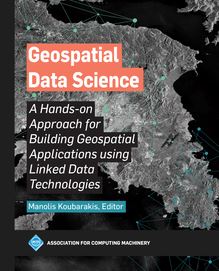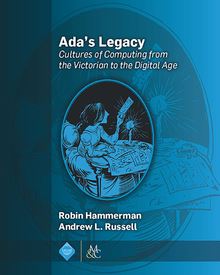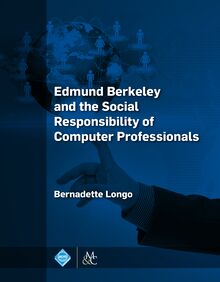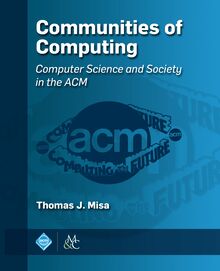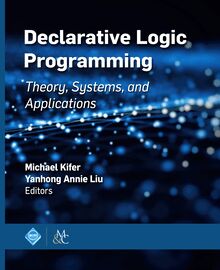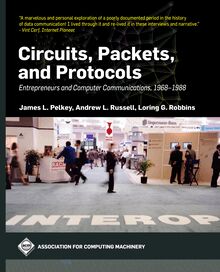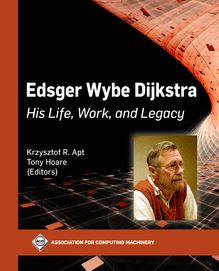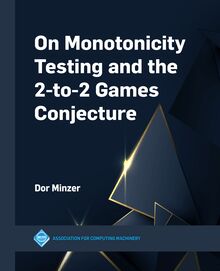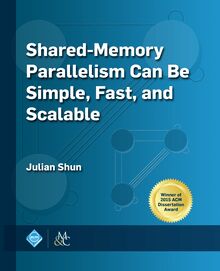-
 Univers
Univers
-
 Ebooks
Ebooks
-
 Livres audio
Livres audio
-
 Presse
Presse
-
 Podcasts
Podcasts
-
 BD
BD
-
 Documents
Documents
-
- Cours
- Révisions
- Ressources pédagogiques
- Sciences de l’éducation
- Manuels scolaires
- Langues
- Travaux de classe
- Annales de BEP
- Etudes supérieures
- Maternelle et primaire
- Fiches de lecture
- Orientation scolaire
- Méthodologie
- Corrigés de devoir
- Annales d’examens et concours
- Annales du bac
- Annales du brevet
- Rapports de stage
La lecture à portée de main
Vous pourrez modifier la taille du texte de cet ouvrage
Découvre YouScribe en t'inscrivant gratuitement
Je m'inscrisA Framework for Scientific Discovery through Video Games , livre ebook
Découvre YouScribe en t'inscrivant gratuitement
Je m'inscrisEn savoir plus
Vous pourrez modifier la taille du texte de cet ouvrage
En savoir plus

Description
computationally tractable become a barrier to scientific progress. Many
scientific problems, however, are amenable to human problem solving skills
that complement computational power. By leveraging these skills on a larger
scale---beyond the relatively few individuals currently engaged in
scientific inquiry---there is the potential for new scientific discoveries.
This book presents a framework for mapping open scientific problems into
video games. The game framework combines computational power with human
problem solving and creativity to work toward solving scientific problems
that neither computers nor humans could previously solve alone. To maximize
the potential contributors to scientific discovery, the framework designs a
game to be played by people with no formal scientific background and
incentivizes long-term engagement with a myriad of collaborative or
competitive reward structures. The framework allows for the continual
coevolution of the players and the game to each other: as players gain
expertise through gameplay, the game changes to become a better tool.
The framework is validated by being applied to proteomics problems with the
video game Foldit. Foldit players have contributed to novel discoveries in
protein structure prediction, protein design, and protein structure
refinement algorithms. The coevolution of human problem solving and computer
tools in an incentivized game framework is an exciting new scientific
pathway that can lead to discoveries currently unreachable by other methods.
Sujets
Informations
| Publié par | Association for Computing Machinery and Morgan & Claypool Publishers |
| Date de parution | 01 juillet 2014 |
| Nombre de lectures | 0 |
| EAN13 | 9781627055062 |
| Langue | English |
| Poids de l'ouvrage | 6 Mo |
Informations légales : prix de location à la page 0,2050€. Cette information est donnée uniquement à titre indicatif conformément à la législation en vigueur.
Extrait
A Framework for Scientific Discovery through Video Games
ACM Books
Editor in Chief
M. Tamer zsu, University of Waterloo
ACM Books is a new series of high-quality books for the computer science community, published by ACM in collaboration with Morgan Claypool Publishers. ACM Books publications are widely distributed in both print and digital formats through booksellers and to libraries (and library consortia) and individual ACM members via the ACM Digital Library platform.
This book by Seth Cooper is a revised version of the dissertation that won the 2011 ACM Doctoral Dissertation Award. Other books in the series include those listed below.
A Framework for Scientific Discovery through Video Games
Seth Cooper, University of Washington
2014
Trust Extension as a Mechanism for Secure Code Execution on Commodity Computers
Bryan Jeffrey Parno, Microsoft Research
2014
Embracing Interference in Wireless Systems
Shyamnath Gollakota, University of Washington
2014
A Framework for Scientific Discovery through Video Games
Seth Cooper
University of Washington
ACM Books #3
Copyright 2014 by the Association for Computing Machinery and Morgan Claypool Publishers
All rights reserved. No part of this publication may be reproduced, stored in a retrieval system, or transmitted in any form or by any means-electronic, mechanical, photocopy, recording, or any other except for brief quotations in printed reviews-without the prior permission of the publisher.
Designations used by companies to distinguish their products are often claimed as trademarks or registered trademarks. In all instances in which Morgan Claypool is aware of a claim, the product names appear in initial capital or all capital letters. Readers, however, should contact the appropriate companies for more complete information regarding trademarks and registration.
A Framework for Scientific Discovery through Video Games
Seth Cooper
books.acm.org
www.morganclaypool.com
ISBN: 978-1-62705-504-8 print
ISBN: 978-1-62705-505-5 ebook
ISBN: 978-1-62705-506-2 ePub
Series ISSN: (to come)
DOIs: 10.1145/2625848 Book
10.1145/2625848.2625849 Preface
10.1145/2625848.2625850 Chapter 1
10.1145/2625848.2625851 Chapter 2
10.1145/2625848.2625852 Chapter 3
10.1145/2625848.2625853 Chapter 4
10.1145/2625848.2625854 Chapter 5
10.1145/2625848.2625855 Chapter 6
10.1145/2625848.2625856 Chapter 7
10.1145/2625848.2625857 Bibliography
A publication in the ACM Books series, #3
Editor in Chief: M. Tamer zsu, University of Waterloo
First Edition
10 9 8 7 6 5 4 3 2 1
To my parents, Harris and Beth Cooper
Contents
Preface
Chapter 1 Introduction
1.1 Motivation
1.2 Problem Statement
1.2.1 Game Design Problem
1.2.2 Biochemistry Discovery Problem
1.3 Outline
Chapter 2 Related Literature
2.1 Volunteer Computing and Human Computation
2.2 Serious Games and Gamification
2.3 Computational Biochemistry
Chapter 3 Framework
3.1 Introduction
3.2 Biochemistry Background
3.3 Framework Description
3.3.1 Architecture
3.3.2 Coevolution Strategy
3.3.3 Categorization as a game
3.4 Game Design Challenges
3.4.1 Visualizations
3.4.2 Interactions
3.4.3 Scoring
3.4.4 Introductory Levels
3.5 Rewards and Social Interaction
3.5.1 Rewards and ranking types
3.6 Conclusion
Chapter 4 Protein Structure Prediction
4.1 Introduction
4.2 Quest to the Natives
4.3 CASP8 Experiments
4.4 Evaluation
4.5 Rebuild and Refine Comparison
4.5.1 First strand swap example
4.5.2 Player contribution and expertise
4.6 Alignment Tool and CASP9
4.7 Solution of Crystal Structure
4.8 Conclusion
Chapter 5 Protein Design
5.1 Introduction
5.2 Framework Extension
5.2.1 Foldit
5.2.2 Iteration Strategy
5.3 Science Transfer
5.3.1 Visualizations
5.3.2 Tools
5.3.3 Conditions
5.4 Introductory Levels
5.5 Examples
5.5.1 Fibronectin
5.5.2 Diels-Alder
5.6 Conclusion
Chapter 6 Protein Structure Refinement Algorithms
6.1 Introduction
6.2 RelatedWork
6.3 Overview
6.3.1 Cookbook
6.4 CASP9 Analysis
6.4.1 Recipe Sharing
6.4.2 Inheritance Relationships
6.4.3 Ratings
6.5 Script Recipe Adoption Analysis
6.6 Algorithm Categories
6.7 Context Dependence
6.8 Recipe Evolution
6.9 Performance Comparison
6.10 Conclusion
Chapter 7 Conclusion
7.1 Contributions
7.2 Future Work
Bibliography
Author s Biography
Preface
When we first set out to create Foldit over six years ago, it wasn t clear that a game-based approach to scientific discovery would work. So we planned from the start for the game to be continually adapting and changing, in order to keep improving based on the lessons we d learn. It took several years of design, development, and continued iteration from a team of computer scientists and biochemists until the game was at a point where we made our first exciting discovery. The nature of the challenging problems we were facing required this time and refinement to solve.
We are now seeing a number of other games that allow players to contribute to scientific research. Muchof this growth has been in fields related to biology and biochemistry: EteRNA for designing RNA shapes, EyeWire for mapping neurons, and Phylo for aligning genetic sequences. Each of these games has had exciting scientific results produced by gameplay. Games are being applied in other areas as well, such as in the Algoraph suite of games for solving graph theory problems. I have been involved in the development of two more science games:Nanocrafter, which aims to push the frontiers of DNA-based synthetic biology, and Flow Jam, which allows players to help formally verify software.
The Foldit community has continued to grow and adapt to the new scientific challenges that we have posed. We have continued to look further into the design of synthetic proteins and their applications for health and understanding proteins. The Foldit team is continually grateful to the player community for their creativity, problem solving, and enthusiasm. Their brainpower and fresh insights have been critical to the successes of the project; without the players, there would be no game.
Scientific discovery games are an exciting part of the growing effort towards engaging the public in science. I look forward to new ways for anyone with an interest and a passion to contribute to scientific discovery.
Acknowledgments
There are many people to thank for helping and supporting me during the creation of this book.
my advisor, Zoran Popovi , for his guidance, support, and the opportunity to work on such a great video game as part of my research;
David Baker for his expertise and time for helping make this a successful project;
my committee members, David Salesin, John Zahorjan, and Ethan Merrit, for their valuable feedback throughout the project;
the Foldit development team-Adrien Treuille and Janos Barbero were instrumental at the very beginning of the project, starting off on the considerable task of creating Foldit;
the members of the Baker lab for lending their considerable biochemical expertise to the project. Firas Khatib contributed excellent biochemical insight and interaction with the Foldit community, and Andrew Leaver-Fay was always available and helpful in understanding the Rosetta codebase;
the community of Foldit players for their enormous contribution to this work, for always surprising me with their ingenuity, and for their patience with the development of the game; and
my parents, Harris and Beth Cooper, my sister, Emily Cooper, and my wife, Fayette Shaw, for all their help and support throughout school.
My work was supported by the National Science Foundation, DARPA, the Howard Hughes Medical Institute, NVIDIA, Electronic Arts, Sony, Microsoft, and Adobe.
Seth Cooper
July 2014
1 Introduction
1.1 Motivation
Despite the massive amounts of computational power available, many difficult scientific problems still remain computationally intractable. Fortunately, people possess great skill in problem solving and creativity, and individual problem solving skills can be augmented by working together in groups. However, only a small population of people are involved in scientific inquiry and advancing science.
The following questions arise: (1) How much more scientific advancement would be possible if more people were involved? (2) Can we integrate what people and computers, respectively, do well? We would like to maximize the effectiveness of this human-computer symbiosis, to find places were computational power is most useful and where human ability can best be applied. People and computers are often good at solving different types of problems; for example, a person would likely translate a passage of text more naturally, and a computer would likely be able to numerically optimize a function faster. We would like to be able to combine the best abilities of each in order to solve challenging problems that neither could alone.
The goal of this book is to determine if it is possible to design the coevolution of human-computer symbiosis to solve currently open problems in science. Two particular areas where humans can excel are spatial reasoning and creativity. People are able to reason spatially by forming mental models of objects, their environment, and the spatial relationships between them [ Byrne and Johnson-Laird 1989 , Tversky 1993 ].
People enjoy expressing their creativity, and many successful video games require players to think about objects in space and their spatial relationships to each other. Tetris 1 is a popular example of this. There are many physical puzzles that rely on spatial reasoning as well, such as Rubik s Cube 2 and many sliding block puzzles. Recently, there has been a rise in popularity of video games whose explicit purpose is to help people train their cognitive skills, such as spatial reasoning. Brain Age 3 and Big Brain Academy 4 are examples of this.
A scientific field that naturall
-
 Univers
Univers
-
 Ebooks
Ebooks
-
 Livres audio
Livres audio
-
 Presse
Presse
-
 Podcasts
Podcasts
-
 BD
BD
-
 Documents
Documents
-
Jeunesse
-
Littérature
-
Ressources professionnelles
-
Santé et bien-être
-
Savoirs
-
Education
-
Loisirs et hobbies
-
Art, musique et cinéma
-
Actualité et débat de société
-
Jeunesse
-
Littérature
-
Ressources professionnelles
-
Santé et bien-être
-
Savoirs
-
Education
-
Loisirs et hobbies
-
Art, musique et cinéma
-
Actualité et débat de société
-
Actualités
-
Lifestyle
-
Presse jeunesse
-
Presse professionnelle
-
Pratique
-
Presse sportive
-
Presse internationale
-
Culture & Médias
-
Action et Aventures
-
Science-fiction et Fantasy
-
Société
-
Jeunesse
-
Littérature
-
Ressources professionnelles
-
Santé et bien-être
-
Savoirs
-
Education
-
Loisirs et hobbies
-
Art, musique et cinéma
-
Actualité et débat de société
- Cours
- Révisions
- Ressources pédagogiques
- Sciences de l’éducation
- Manuels scolaires
- Langues
- Travaux de classe
- Annales de BEP
- Etudes supérieures
- Maternelle et primaire
- Fiches de lecture
- Orientation scolaire
- Méthodologie
- Corrigés de devoir
- Annales d’examens et concours
- Annales du bac
- Annales du brevet
- Rapports de stage
